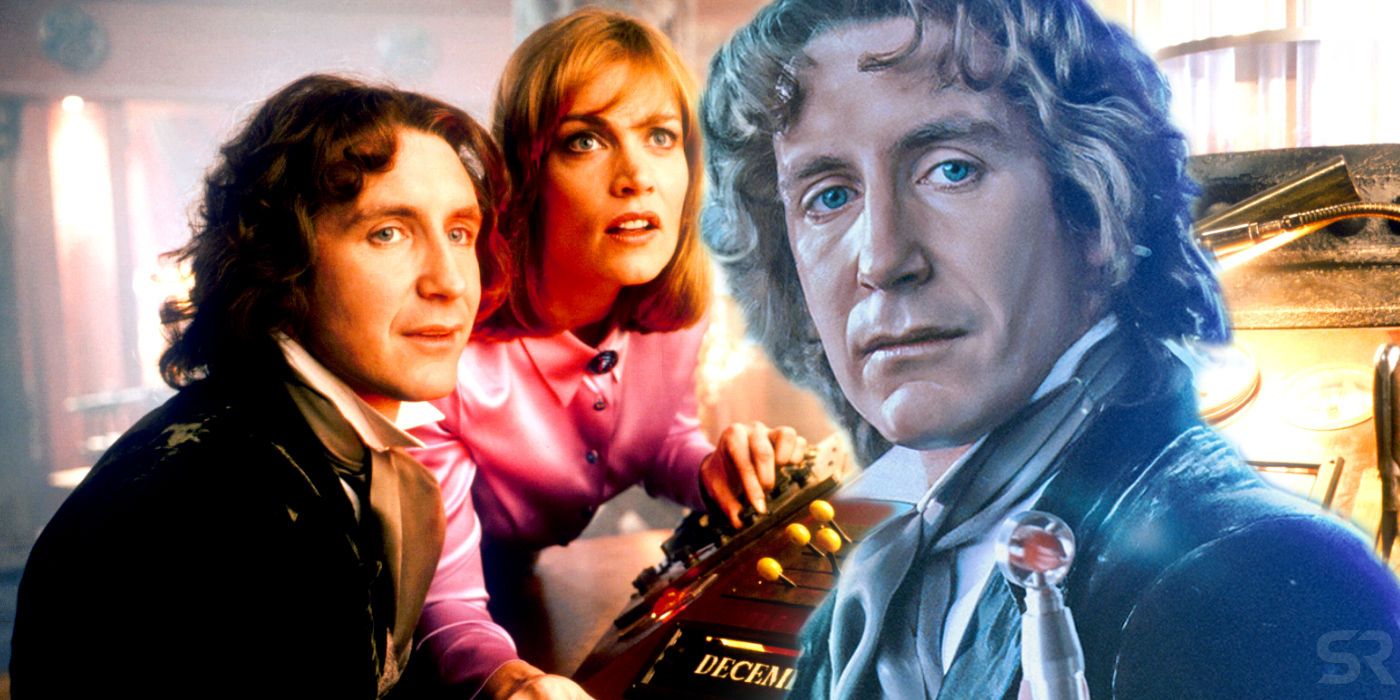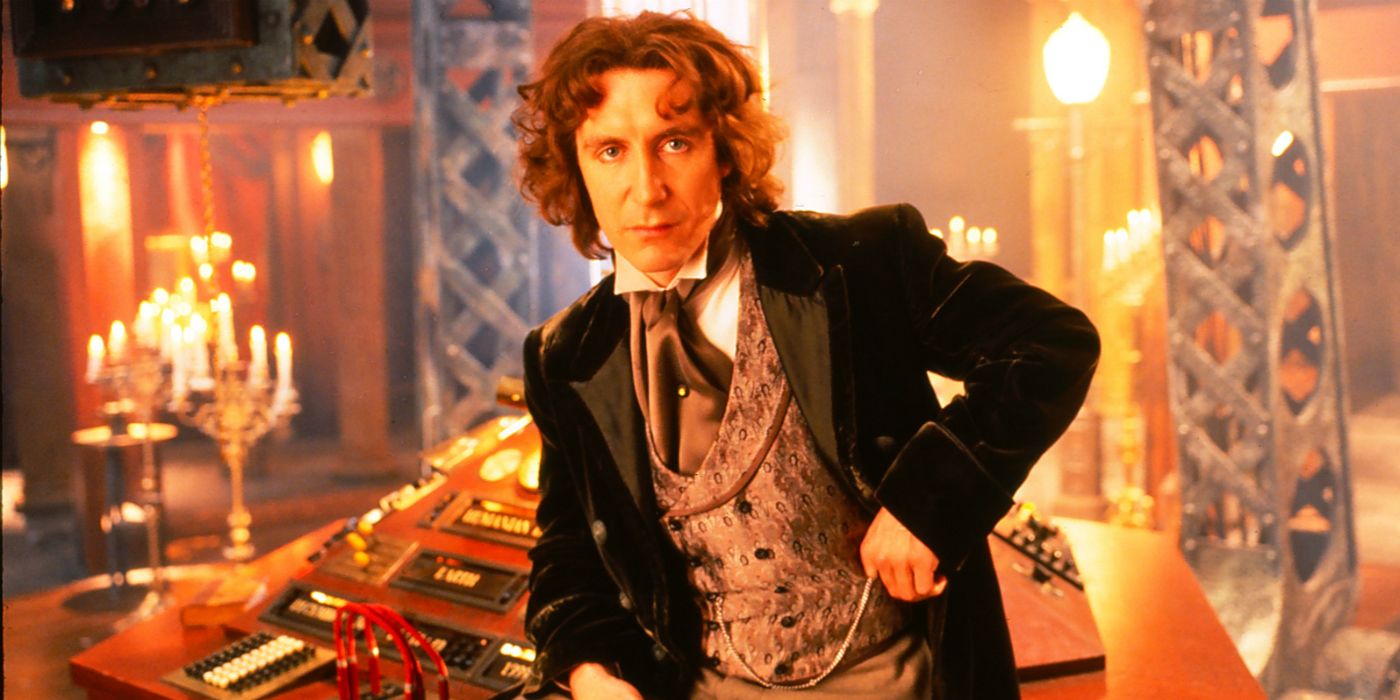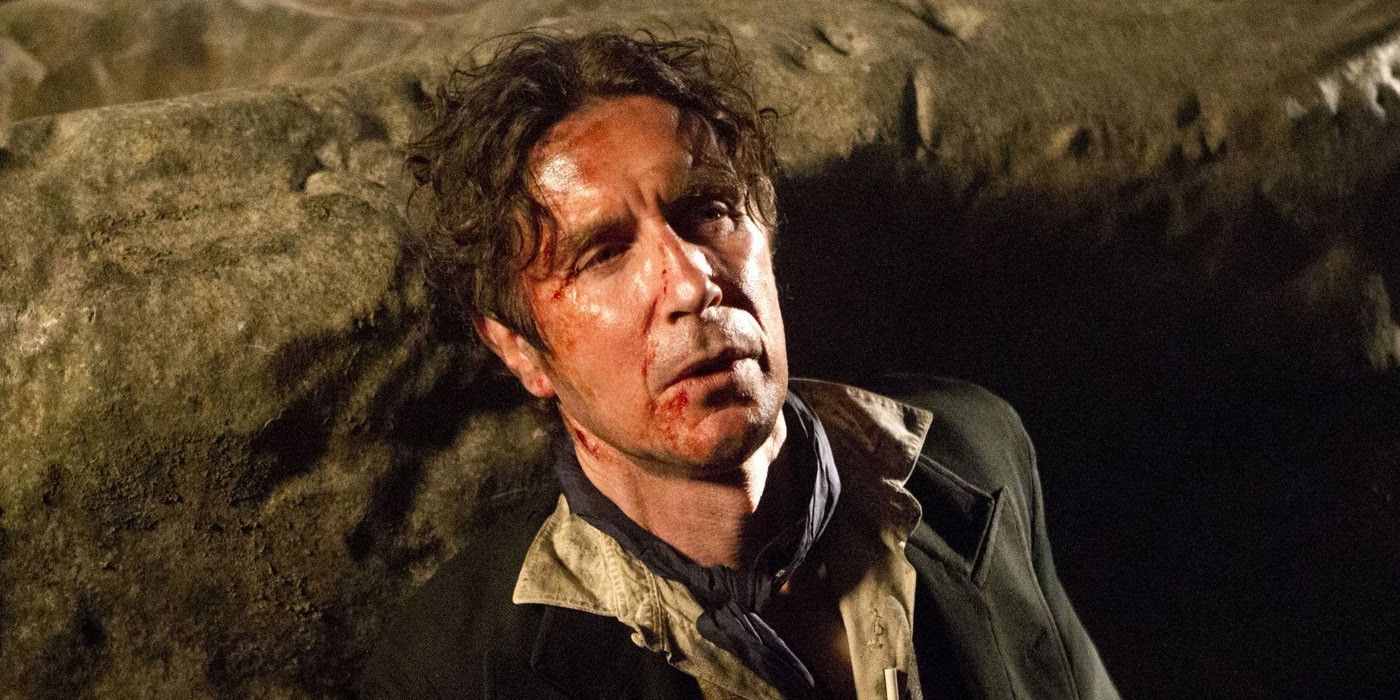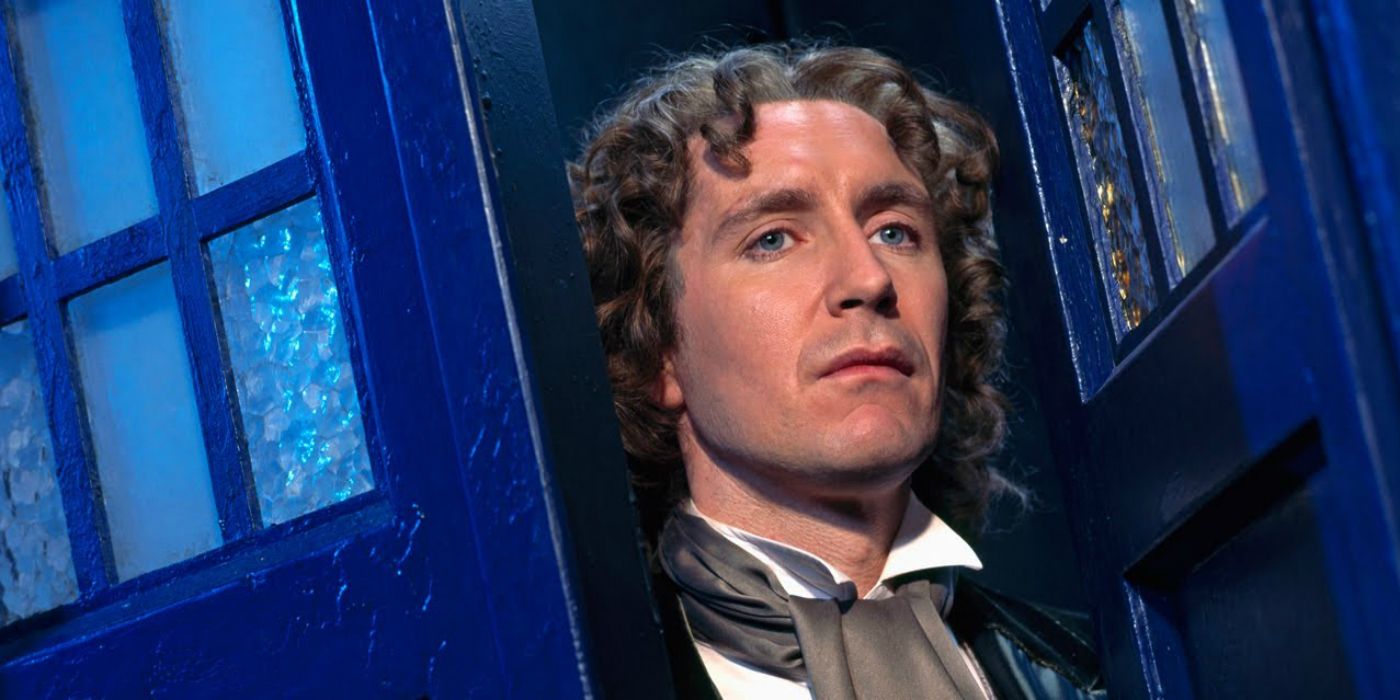The Doctor Who TV movie retconned the Doctor as being half-human - and the BBC abandoned the idea. In 1996, producer Philip Segal attempted to relaunch Doctor Who with a made-for-TV movie that was essentially a pitch for a new, Americanized series. The Doctor Who movie was a failure, but it's still considered part of the canon.
The Doctor Who movie attempted to bring old-school viewers on board by carefully honoring the show's continuity, even featuring Sylvester McCoy as the Doctor at the beginning of the film. But it also made some surprising alterations to the canon - one of which was the revelation that the Doctor is half-human. In one scene, the Master studied the Doctor's retinal pattern, and was surprised to note that it was human rather than Time Lord. Later, the Doctor confirmed the truth himself, revealing that he's half-human - on his mother's side.
It's proven to be one of the most controversial retcons in Doctor Who history. So why was it made, and how has the series dealt with this plot twist as the years have progressed?
Behind The Scenes On Doctor Who's Most Controversial Decision
The idea of a human/Time Lord relationship wasn't really new; one story in the Tom Baker-era had ended with the Doctor's companion Leela staying on Gallifrey to marry a Time Lord. But it wasn't until the 1990s that scriptwriter John Leekley, who'd been hired to produce a script for a prospective Doctor Who relaunch, hit upon the idea that the Doctor could be half-human. As Leekley confirmed in an interview in Jean-Marc Lofficier's The Nth Doctor, "In the original BBC television series no one ever seemed to ask themselves why Earth? Why was the Doctor so passionate about this place and these people?" To Leekley, the answer was obvious; that as a half-human, the Doctor shared aspects of humanity's nature that drew him back to Earth, as inexorably as the moon controls the tides.
Leekley's scripts were essentially origin stories for the Doctor, and he used the Doctor's half-human nature to explain why he was a poor fit on Gallifrey. According to Leekley, the most telling point was that the Doctor's eyes are a piercing blue, marking him out from the rest of his race, who have dark eyes. But Leekley envisioned the Time Lords hiding the truth about the Doctor's heritage, concealing it in an attempt to help him integrate. In the end, president Borusa - the Doctor's grandfather - revealed the truth.
"Until we perfected time travel, many of our explorers were lost. My own son, Ulysses, never returned... [He] had a second child while exploring the Blue Planet, Earth... by a woman of that world... You are that blue-eyed child. When your mother died, your father sent you back to Gallifrey, to be raised among his own people."
Leekley's script was unfortunately abandoned, and Segal changed tack, choosing to continue Doctor Who's story rather than reboot it as Leekley had envisioned. The final Doctor Who movie sticks with the idea that the Doctor is half-human, and even has a nod to the eyes, but it used this revelation in a very different way. Segal's film is eminently concerned with making the Doctor relatable, which drives the amnesiac plot and explains his romance with Dr. Grace Holloway. The half-human aspect was used in the same way, to help new viewers relate to the wandering Time Lord.
Viewers Didn't Like The Idea That The Doctor Was Half-Human
The Doctor's half-human heritage proved to be a matter of some controversy. Some long-term fans accepted that it neatly explained why the Doctor kept coming back to Earth, while others argued that it would have been commented on by another Time Lord long ago. What's more, the matter-of-fact way the Doctor told a random mugger he was half-human irked some viewers, who felt that this was a major revelation rather than a bit of off-the-cuff Doctor Who trivia. The execution just hadn't been quite right.
The Doctor Who movie failed, and the franchise was reduced to a series of novels. Several of these addressed the controversy in loose terms, although all attempted to explain it away. It was finally confronted by Lance Parkin in his novel The Gallifrey Chronicles, where he revealed that a Time Lord named Ulysses had a son with a human named Penelope Gate, a woman from the 19th century who had appeared once previously in a Seventh Doctor novel. It's not hard to see where Parkin got the idea from, but even then he avoided naming Ulysses' son, allowing readers to make their own minds up whether this was the Doctor.
When Russell T. Davies successfully relaunched Doctor Who in 2005, he admitted he wasn't a fan. "I don't like the half-human thing," he noted in an interview with Big Finish. "He certainly isn't half-human, but it's less interesting to say it simply doesn't count. I always wanted to put in a line where someone says to the Doctor, 'Are you human?' and the Doctor says, 'No, but I was once in 1999. It was a 24-hour bunk.'" Davies apparently felt this was a bit too self-referential and feared that he would spoiling the movie if he did that.
Is The Doctor Still Half-Human?
Davies did indeed choose to deal with the issue, albeit in an ambiguous fashion. In The End of Time, he cast Claire Bloom as a mysterious Time Lady. He told Bloom that she was playing the Doctor's mother, and indeed the British press reported this. In the end, though, the script is deliberately unclear, again allowing viewers to make up their own minds. Even the script is silent on this point. In one scene, the Doctor's friend Wilf asks the Doctor who she was, and the script reads, "The Doctor just looks. At Wilf. At Sylvia. At Donna, in the distance. Friends, mothers, brides. He's not saying."
Ultimately, then, every viewer now has to make up their own mind about the Doctor. They can believe the Doctor Who movie is true, and that the wandering Time Lord is indeed half-human. Or, alternatively, they can dismiss this as a fluke of regeneration - perhaps the Doctor's McGann incarnation featuring an unusual human retinal pattern - and even view Claire Bloom's character as the Doctor's mother. Beyond this, it's reasonable to assume that Doctor Who will carefully avoid making any explicit statements in the future.




